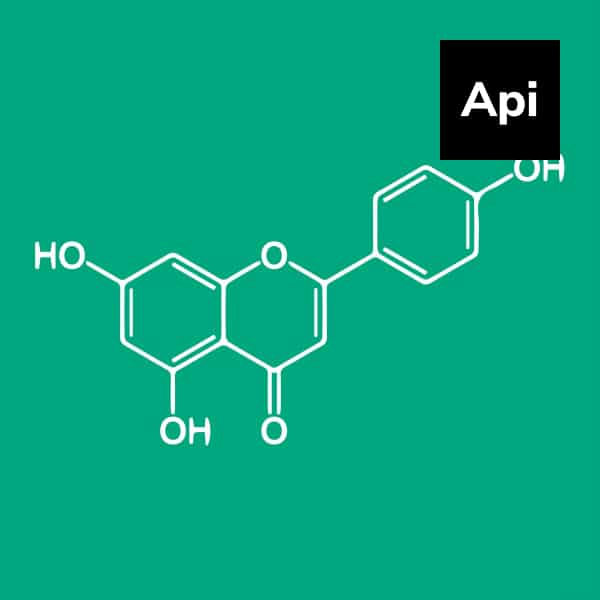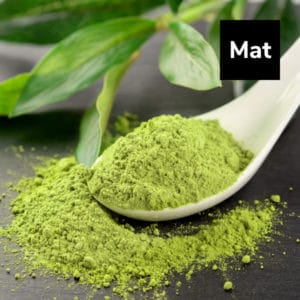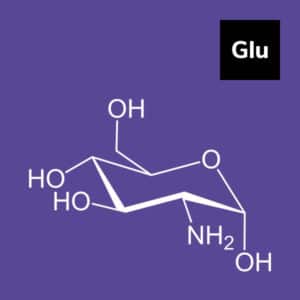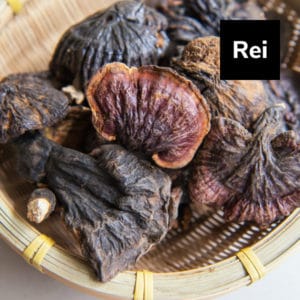Overview
Apigenin is a common flavonoid in plants that is extracted and processed into a light yellow-to-brown crystalline powder. Numerous studies have indicated that apigenin has many interesting pharmacological activities and nutraceutical potential for humans.
Key Benefits
- Supports restful sleep
- Helps reduce anxiety
- May help support brain function
- Provides support for healthy insulin production
- Reduces inflammation
- Supports gut health
- Provides anti-carcinogenic effects
- Provides nitric oxide to endothelial cells
History of Usage
Apigenin is the active Ingredient in chamomile flowers. Chamomile tea, which is extremely rich in apigenin, has been used as a folk medicine for relieving indigestion or gastritis, anxiety, sleep disorders, and to treat wounds, ulcers, eczema, gout, skin inflammations, bacterial infections, colic, and more. Apigenin was first studied in the 1960s, and chemoprevention was recommended in the 1980s. Recently, apigenin has received much attention because it has low toxicity and exerts differential effects on normal versus cancer cell growth, survival, or apoptosis in several types of cells.
Biochemistry
In addition to a wide variety of fruits and vegetables, the herb apigenin is also found in herbs such as basil, thyme, and spearmint. Apigenin can be found in a variety of foods, including celery, celeriac, parsley, sorghum, and tarragon. Chamomile (Matricaria chamomilla/recutita) flowers contain 3-5 mg per gram of apigenin. Typical doses in nutritional supplements start at 50 mg.
Monomeric flavonoids such as Apigenin, 4′,5,7-trihydroxy-flavone, are prevalent in the average diet. Apigenin is classified as a flavone, one of the flavonoids subclasses, based on its chemical structure. Apigenin has garnered researchers’ attention in part because of its low toxicity and numerous positive bioactivities.
Apigenin must pass through the gastrointestinal tract before it may enter the bloodstream and enter the liver. Both passive and active carrier-mediated saturable processes in the duodenum and jejunum, and passive transport mechanisms in the ileum and colon, principally, can be used to transport Apigenin. Gut microbes can use the excretion of apigenin from the digestive tract to digest apigenin from the meal.
Recent Trends
The market for apigenin is predicted to grow in the near future due to its anticancer properties. Apigenin supplements can be found in powder and capsule forms to promote sleep and relaxation, prostate health, healthy aging and cognitive function, and antioxidant protection and immune function.
Precautions
- Pregnant and breastfeeding women should not take apigenin.
- Individuals who are hypersensitive to ragweed, chrysanthemums, marigolds, daisies, and other herbs should be alert for allergy symptoms.
- Anticoagulant and antiplatelet medications, as well as sedatives, may all interact with apigenin.
References
- Salehi B, Venditti A, Sharifi-Rad M, et al. The Therapeutic Potential of Apigenin. Int J Mol Sci. 2019;20(6):1305. Published 2019 Mar 15. doi:10.3390/ijms20061305
- Hieu TH, Dibas M, Surya Dila KA, Sherif NA, Hashmi MU, Mahmoud M, Trang NTT, Abdullah L, Nghia TLB, Y MN, Hirayama K, Huy NT. Therapeutic efficacy and safety of chamomile for state anxiety, generalized anxiety disorder, insomnia, and sleep quality: A systematic review and meta-analysis of randomized trials and quasi-randomized trials. Phytother Res. 2019 Jun;33(6):1604-1615. doi: 10.1002/ptr.6349. Epub 2019 Apr 21. PMID: 31006899.
- Mao JJ, Xie SX, Keefe JR, Soeller I, Li QS, Amsterdam JD. Long-term chamomile (Matricaria chamomilla L.) treatment for generalized anxiety disorder: A randomized clinical trial. Phytomedicine. 2016;23(14):1735-1742. doi:10.1016/j.phymed.2016.10.012
- Bhagwat S., Haytowitz D. B., Holden J. M. USDA Database for the Flavonoid Content of Selected Foods. U.S. Department of Agriculture. 2011:1–156.
- Zhang J., Liu D., Huang Y., Gao Y., Qian S. Biopharmaceutics classification and intestinal absorption study of apigenin. International Journal of Pharmaceutics. 2012;436(1-2):311–317.
- Ali F., Rahul ., Naz F., Jyoti S., Siddique Y. H. Health functionality of apigenin: A review. International Journal of Food Properties. 2016;20(6):1197–1238. doi: 10.1080/10942912.2016.1207188.
- Lefort É. C., Blay J. Apigenin and its impact on gastrointestinal cancers. Molecular Nutrition & Food Research. 2013;57(1):126–144. doi: 10.1002/mnfr.201200424.
- Wang M, Firrman J, Liu L, Yam K. A Review on Flavonoid Apigenin: Dietary Intake, ADME, Antimicrobial Effects, and Interactions with Human Gut Microbiota. Biomed Res Int. 2019;2019:7010467. Published 2019 Oct 16. doi:10.1155/2019/7010467
- Campbell E.L., Chebib M., Johnston G.A.R. The dietary flavonoids apigenin and (-)- epigallocatechin gallate enhance the positive modulation by diazepam of the activation by GABA of recombinant GABA(A) receptors. Biochem. Pharmacol. 2004;68:1631–1638. doi: 10.1016/j.bcp.2004.07.022.
- Pamunuwa G., Karunaratne D.N., Waisundara V.Y. Antidiabetic Properties, Bioactive Constituents, and Other Therapeutic Effects of Scoparia dulcis. Evid. Based Complement. Alternat. Med. 2016;2016:8243215. doi: 10.1155/2016/8243215.
- Shoara R., Hashempur M.H., Ashraf A., Salehi A., Dehshahri S., Habibagahi Z. Efficacy and safety of topical Matricaria chamomilla L. (chamomile) oil for knee osteoarthritis: A randomized controlled clinical trial. Complement. Ther. Clin. Pract. 2015;21:181–187. doi: 10.1016/j.ctcp.2015.06.003.
- Yan X, Qi M, Li P, Zhan Y, Shao H. Apigenin in cancer therapy: anti-cancer effects and mechanisms of action. Cell Biosci. 2017 Oct 5;7:50. doi: 10.1186/s13578-017-0179-x. PMID: 29034071; PMCID: PMC5629766.




